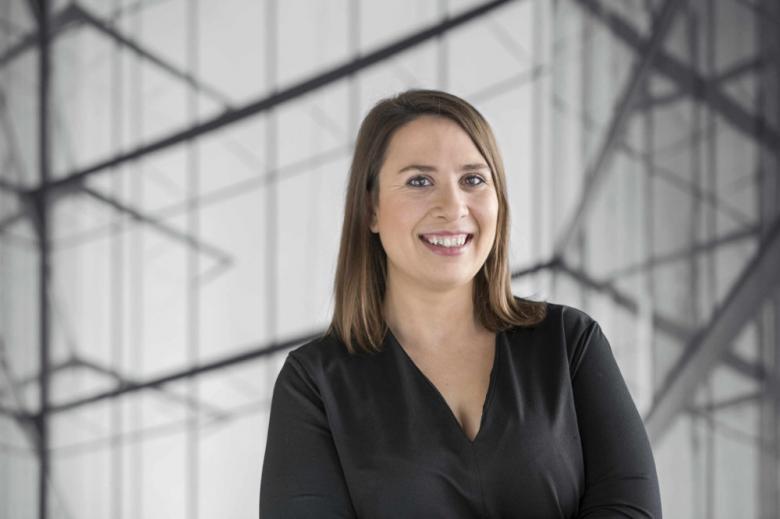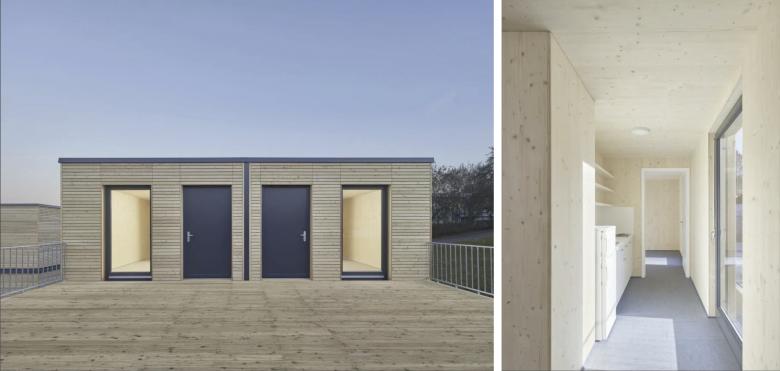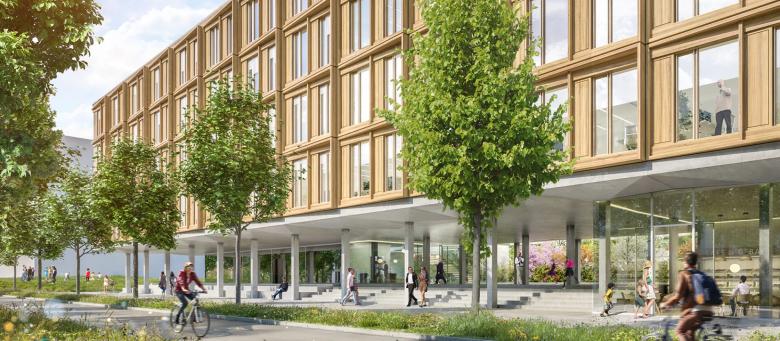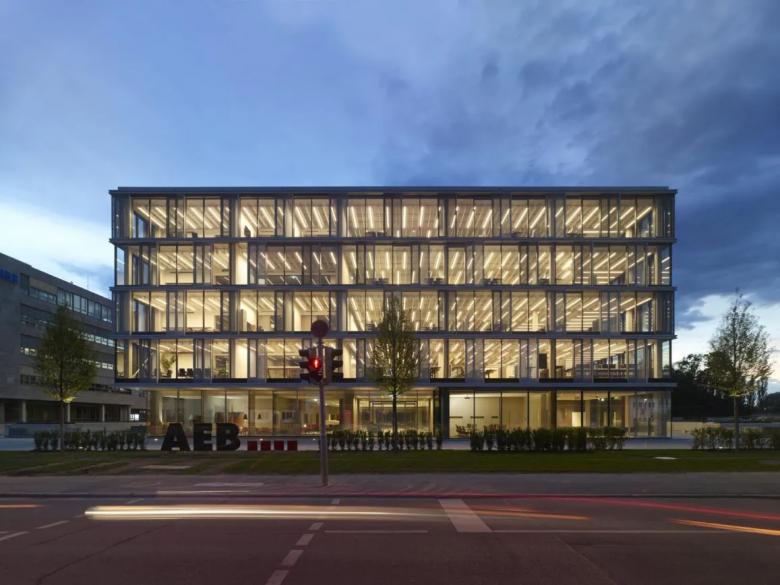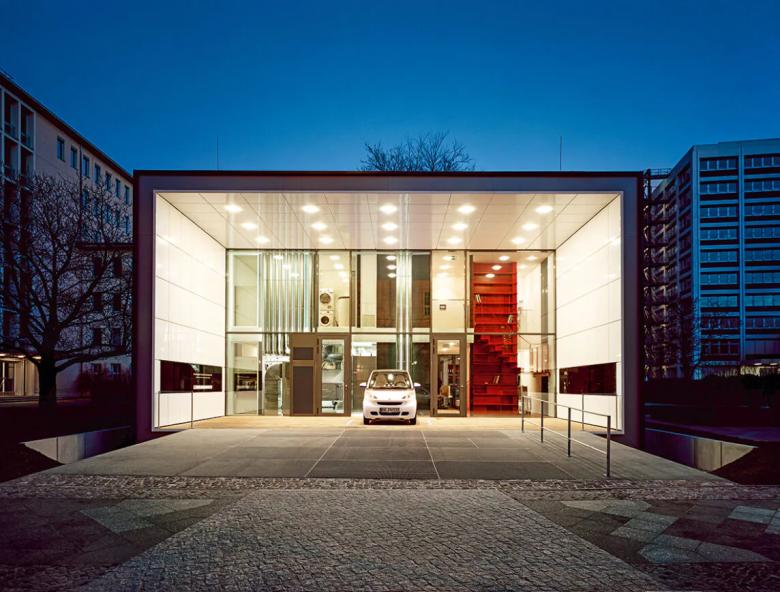Nefeli Mavroeidi: »Aspects such as resource conservation, emission reduction, circularity, and climate resilience play a much greater role today than they did five or ten years ago.«
Climate change is a fact, which is why for Nefeli Mavroeidi, moving away from fossil fuels is the only way for the necessary transformation, not only in the construction sector but in all sectors. As the team leader for Building Physics & Sustainability at Werner Sobek Green Technologies in Frankfurt am Main, she has been dealing with sustainability issues for many years and is actively involved in organizations such as the German Sustainable Building Council (DGNB). A conversation about the need to drive sustainability issues forward now and not cling to old technologies.
Mrs Mavroeidi, looking more closely at your CV, it turns out that you started focusing on energy-efficient and sustainable construction fairly soon after completing your architecture studies. What was decisive for you to move away from architectural design and towards sustainability?During my studies, I quickly became aware that as architects, our plans and decisions have a significant impact on people and the world. At that time, I started delving into the topic of sustainable construction. Against this background, I consciously chose the Master's program Energy-efficient and Sustainable Building.
Indeed, sustainability is not a new topic for the construction industry. However, in the past decades, it was often associated primarily with energy efficiency. An important development in recent years is that we are now aware that sustainability affects all aspects of our planning and is very comprehensive. Aspects such as resource conservation, emission reduction, circularity, and climate resilience play a much greater role today than they did five or ten years ago.
As part of the first amendment to the Building Energy Act from 2023, the previous standard for new buildings was raised in terms of the annual primary energy demand. With the recently enacted second amendment to the Building Energy Act, the focus is on the provision of heat from renewable energies. This certainly means a further development or redesign of the heating and cooling supply for new buildings. Especially for new buildings in inner-city areas, this can be a significant challenge. The use of more efficient building technology components or the decarbonization of local and district heating networks is crucial here. However, if we truly want to achieve our climate targets, we will not be able to avoid stricter legal requirements, especially regarding grey emissions and resource consumption. The major transformation that lies ahead of us requires significant efforts from all involved parties, including planners, executing companies, clients, and policymakers.
The approach we pursue at Werner Sobek regarding the planning of energy-efficient and sustainable buildings is summarized in the so-called Triple Zero concept. This concept, developed by Professor Werner Sobek almost three decades ago, is a simple rule of thumb for defining a sustainable building. As part of a comprehensive sustainability strategy and an adapted energy design, we first aim to increase the sustainability of a building primarily through passive measures. Building services components then complement these passive measures and are an essential part of the energy design. In addition, concepts such as waste heat utilization, ice storage technology combined with solar energy are integrated into the building concepts a spart of a holistic approach.
Energy storage and the user-oriented coordination of building demand and consumption are the keys to a highly efficient and economical energy concept. In our daily work, we deal with topics such as energy autonomy and climate-positive energy concepts. Concepts such as ice storage combined with heat pumps and solar thermal collectors are increasingly being used. They contribute significantly to balancing supply and demand fluctuations. Such concepts are suitable for both building and district levels. Another area we are currently focusing on, and where we see enormous development potential, is the integration of hydrogen technology into energy concepts.
Climate change is a fact. What we are experiencing today is mainly caused by human activities. The construction sector is responsible for approximately 60% of resource consumption and more than 50% of CO₂ emissions worldwide. So, the construction industry has the most significant leverage when it comes to resources, energy consumption, and emissions. It is in our hands and our responsibility to make a change. Departing from fossil fuels, not only in the construction sector but in all sectors, is the only way to successfully master the great transformation.
Innovation Hub: Light + Building 2024
Modern building services technology stands for efficient energy use, individual comfort enhancement, and comprehensive security. An integral part of the built world is light. Therefore, from March 3 to 8, 2024, Light + Building in Frankfurt/Main will present the entire spectrum from intelligent lighting technology to pioneering building services technology.
Over 2,000 exhibitors have registered to present their innovations live to a broad audience across the entire Frankfurt exhibition center. With its comprehensive range encompassing lighting, electrical technology, home and building automation, and connected safety and security technology, the world's leading trade fair is a must for architects, interior designers, designers, planners, and engineers, as well as for crafts, trade, and industry. Under the motto "Be Electrified", the international leading trade fair focuses on electrification—the basis for greater sustainability and a future-oriented building sector.
The extensive event program provides inspiration and information. The Design Plaza in Hall 3.1 revolves around light, architecture, and design. The program includes trend lectures by the trend bureau bora.herke.palmisano, the presentation of the Design Plus Awards by Light + Building, as well as talks by Women in Lighting. In thematic proximity to home and building automation and electrical technology, the Building Plaza in Hall 9.0 and the ZVEI Technology Forum in Hall 12.1 offer lectures on industry-relevant topics.
All information on the highlights of the Light + Building supporting program is available at: https://light-building.messefrankfurt.com/frankfurt/en/programme-events/events-lb.html
Light + Building – The world's leading trade fair for lighting and building services technology, 3 to 8 March 2024:
https://light-building.messefrankfurt.com/frankfurt/en.html
Talks+Tours and Guided Tours with 8 international experts
World-Architects organizes Talks+Tours with Sophia Klees, Prof. Andreas Schulz (LICHT KUNST LICHT), and Guided Tours with Prof. Clemens Tropp (TROPP LIGHTING DESIGN), Michael Burghaus (architekturbüro .pg1), Jan Nielsen (CONCEPTLICHT), Reinhard Germer (L-PLAN Lighting Design), Sabine De Schutter (Studio De Schutter), and Ulrike Brandi (Ulrike Brandi Licht). The Guided Tours are conducted in German or English and last approximately 90 minutes. Each of them will show you individual highlights at Light + Building in Frankfurt from March 3 to 6.
Light + Building Talks+Tours and Guided Tours – Information + Registration
World-Architects is content partner of Messe Frankfurt
